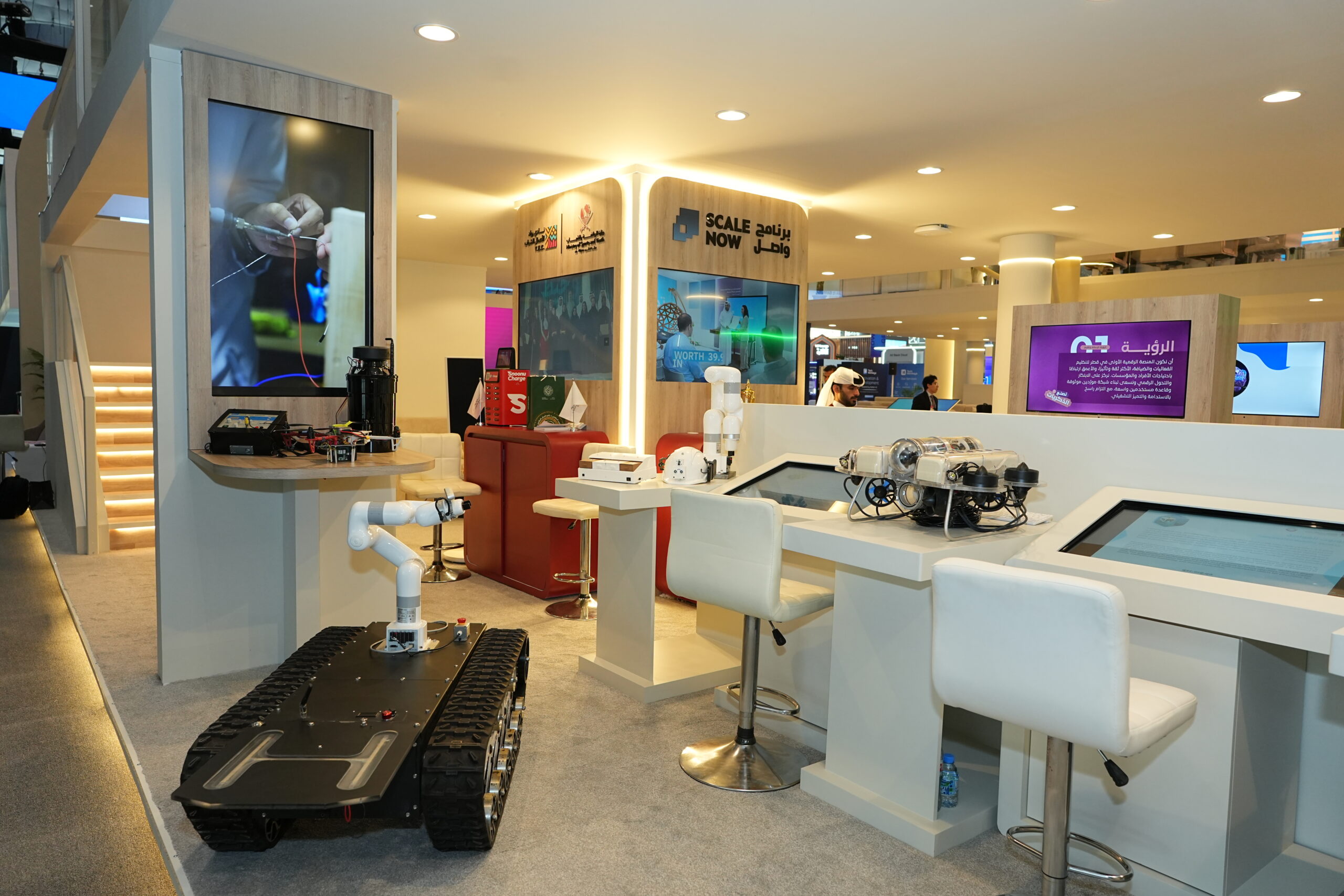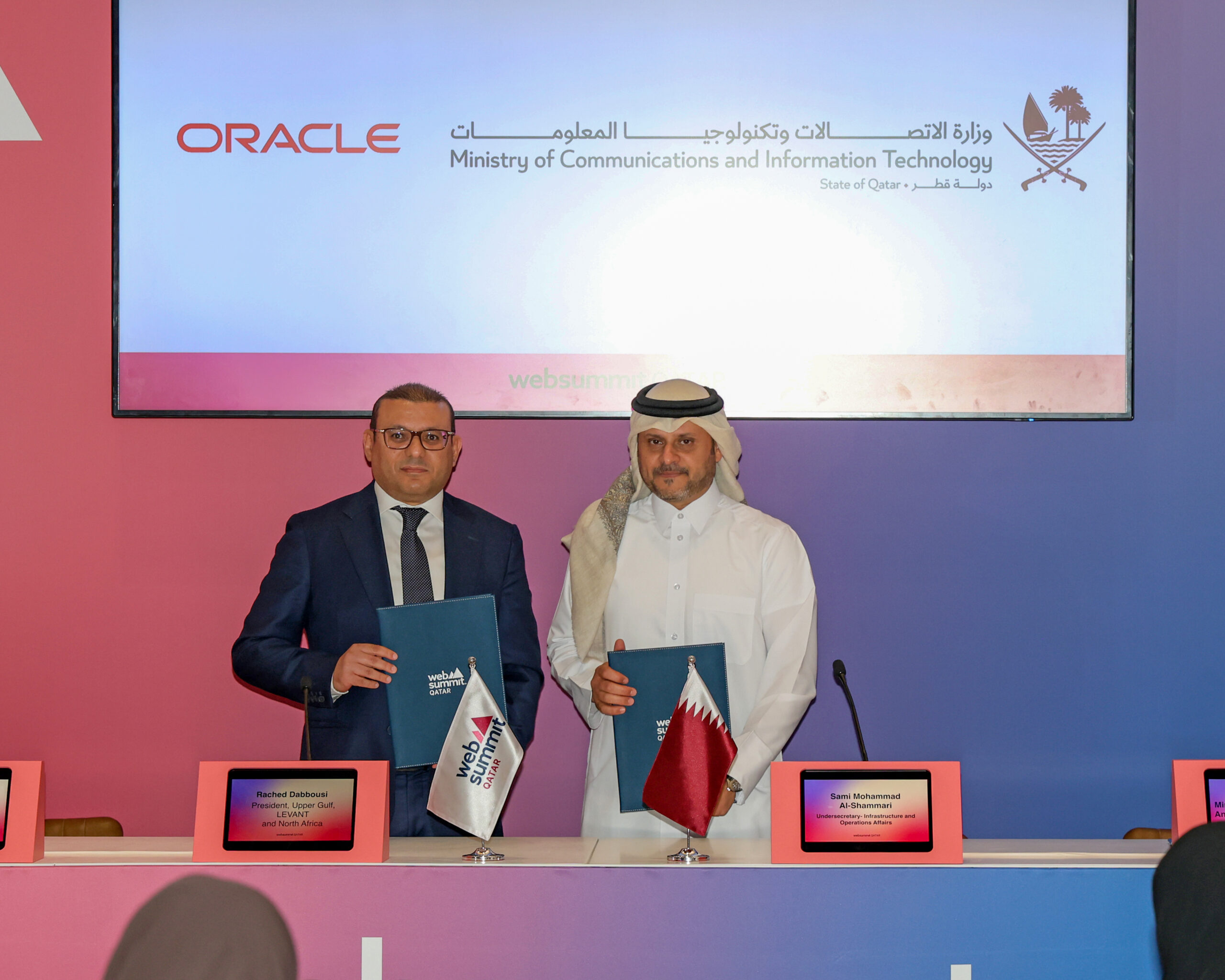- English

Ministry of Communications and Information Technology Signs Partnership Initiative with Microsoft to Launch Azure OpenAI Service to Drive AI Innovation from Qatar to the World
- The Azure OpenAI service will be available through Microsoft datacenter region in Qatar, boosting national AI capabilities and supporting the objectives of the Digital Agenda 2030.
- The powerful OpenAI models will run on the Azure platform, with new GPUs available, allowing data processing locally in Microsoft cloud region in the country.
- The service will provide government entities and private sector organizations with access to advanced OpenAI models and GPUs to develop AI-driven applications such as virtual assistants, automated chats, and more.
The Ministry of Communications and Information Technology (MCIT) has signed a Partnership Initiative with Microsoft to launch the Azure OpenAI service across various government entities. This initiative aims to enhance the use of AI technologies to support digital innovation in the public sector. It aligns with the objectives of the Digital Agenda 2030, fostering digital transformation and driving innovation. The Azure OpenAI service will enable institutions and entities across Qatar to leverage advanced AI models to offer innovative, AI-powered government services.
The Partnership Initiative was signed by H.E. Reem Al Mansoori, Assistant Undersecretary for Digital Industry Affairs at MCIT, and Ms. Lana Khalaf, General Manager of Microsoft Qatar, during the Web Summit Qatar 2025. The initiative aims to empower government entities and the private sector with access to cutting-edge AI technologies, contributing to increased productivity and enhanced services. Azure OpenAI is one of Microsoft’s leading AI services, widely adopted by governments and major corporations worldwide to enhance performance and develop innovative AI-based solutions.
The Azure OpenAI service enables direct access to advanced OpenAI models, including language models, through Microsoft’s local cloud infrastructure, supported by GPUs available in Qatar. This service allows organizations and government entities to develop AI-powered solutions such as virtual assistants that enhance customer experience, intelligent chat systems enabling natural interaction with users, AI assistants capable of performing high-efficiency tasks, and advanced data analytics solutions that support decision-making processes. Additionally, the service will contribute to improving operational efficiency, reducing costs, and advancing digital transformation initiatives in the country.
H.E. Reem Al Mansoori, Assistant Undersecretary for Digital Industry Affairs, commented: “The launch of Azure OpenAI in Qatar marks a significant milestone in our journey toward establishing the country as a regional hub for digital innovation. By hosting advanced AI technologies locally, we are reinforcing digital transformation across various sectors, supporting the Digital Agenda 2030, and advancing the objectives of the Third National Development Strategy. This collaboration will empower our government institutions, private sector, and educational entities with the advanced tools necessary to enhance productivity, improve operational efficiency, and elevate service quality.”
For her part, Ms. Lana Khalaf, General Manager, Microsoft Qatar, stated, “We are proud to partner with the Ministry of Communications and Information Technology (MCIT) to bring the Azure OpenAI Service with new GPUs to the Qatar Datacenter Region. This represents a major milestone in transforming Qatar into an AI hub.” She added, “We remain committed to empowering every organization with cutting-edge generative AI capabilities, enterprise-grade security, and seamless cloud integration—unlocking new possibilities for innovation from Qatar to the world.”
This strategic partnership between the Ministry of Communications and Information Technology and Microsoft is part of the ministry’s ongoing efforts to promote the development of responsible AI, ensuring the highest standards of ethics and transparency in the use of smart technologies. Through this initiative, the ministry seeks to enable government entities and the private sector to access the latest AI technologies, supporting the knowledge-based digital economy. This step also aligns with global trends leveraging AI to achieve sustainable development and address economic and social challenges.




